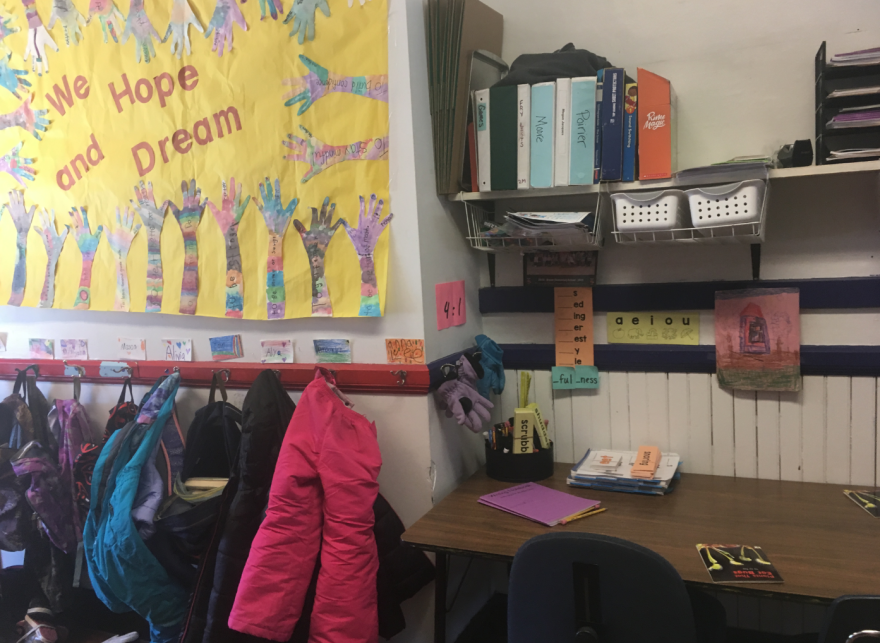This story was originally produced by the New Hampshire Bulletin, an independent local newsroom that allows NHPR and other outlets to republish its reporting.
A majority of Granite Staters appear supportive of their local teachers and opposed to a recent law restricting them from certain teaching topics, a new poll from the University of New Hampshire suggests.
The poll, released Thursday, found that 51% of respondents thought the quality of their local public school teachers was “good” or “very good,” and that 17% thought it was “fair.” Of the remainder, 6% thought local teachers were “poor” or “very poor,” and 26% were “not sure.”
The poll also found that 50% of all respondents thought local teacher salaries are “not enough,” and 61% said they would support raising teacher pay even if it meant increasing their school district’s budget.
Meanwhile, a new law barring educators from teaching certain “banned concepts” and penalizing teachers who do so is not as popular.
Fifty-two percent say they opposed the new law, described by the poll as the “divisive concepts” law, a reference to an earlier title for it. Passed in 2021 as part of the state budget, the law prevents educators, administrators, or state employees from advocating for a series of concepts, including that one race, gender, or other protected class is inherently superior to another, inherently prejudiced against another, or should be treated differently than another.
Educators and public school advocates have opposed the law, arguing it stifles teachers who might avoid nuanced discussions on race, gender, or sexuality for fear of being challenged under the law and penalized professionally. Supporters, who call it the “freedom from discrimination” law, have said that it merely is meant to prevent teachers from singling out students for their race or gender when talking about perceived discrimination and bias.
The poll found that 34% of respondents supported the law, 3% were neutral, and 12% were not sure.
A separate question found that 50% knew “not very much” or “not at all” about the law, compared to 48% who knew “a lot” or “some.”
The poll also found that respondents were much more likely to be supportive of the law if they had low faith in their local teachers. Of the 6% who rated their local teachers as “poor” or “very poor,” 71% supported the banned concepts law. In contrast, of those who assessed their teachers as “good” or “very good” 64% opposed the law.
The poll also found that New Hampshire residents are broadly supportive of sex education in New Hampshire schools: 77% say it should be taught, while 17% say it shouldn’t. Sixty-four percent said that parents and guardians should have primary responsibility for sex ed but that local school districts should have a role, too. Of the remainder, 21% said the primary responsibility should lie with the school districts, and 15 percent said it should be parents’ role only.
Thursday’s UNH poll found a near even split over who residents think should decide how sexual orientation and gender identity issues are taught in schools. Forty-three percent said that school districts should make those decisions, while 42% said lawmakers should pass a state law to standardize the instruction. Fourteen percent were not sure.
The poll surveyed 966 members of the “Granite State Panel” online between Oct. 13 and Oct 17; the results have a 3.2%margin of error.
New Hampshire Bulletin is part of States Newsroom, a network of news bureaus supported by grants and a coalition of donors as a 501c(3) public charity. New Hampshire Bulletin maintains editorial independence. Contact Editor Dana Wormald for questions: info@newhampshirebulletin.com. Follow New Hampshire Bulletin on Facebook and Twitter.







